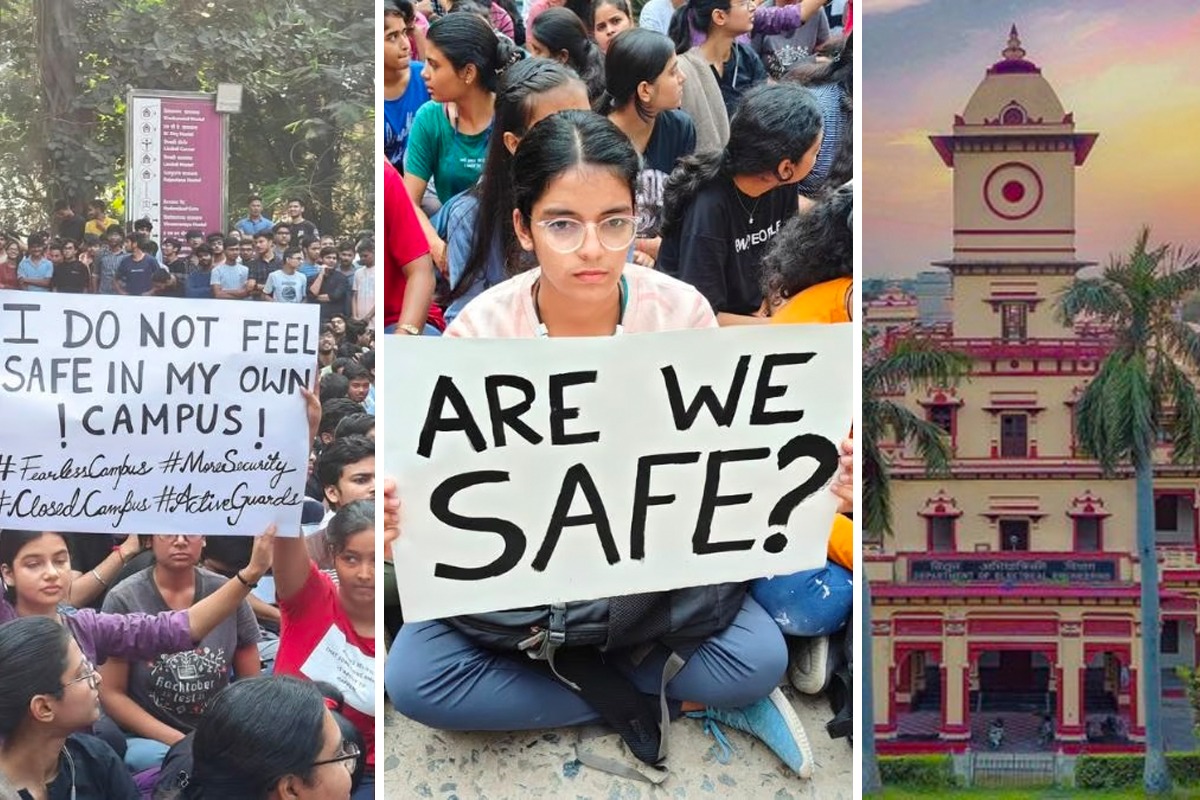The recent gang-rape of a female student on the IIT-BHU campus in Varanasi has shocked the nation and exposed the failure of the authorities to ensure the safety and security of women on educational premises. The incident, which occurred in November, came to light only after the victim filed a complaint and the students staged protests demanding justice. The police have arrested three accused, who are not students of the institute, but have alleged links with the ruling BJP party. The opposition has seized the opportunity to attack the state government and the BJP, accusing them of shielding the culprits and delaying the investigation. The BJP has denied any connection with the accused and promised to punish them as per the law.
The campus rape case is not an isolated one. It is a reflection of the pervasive violence and discrimination that women face in our society, especially in public spaces. According to the National Crime Records Bureau, a woman is raped every hour in India, and most of the cases go unreported or unresolved. The Nirbhaya case of 2012, which sparked nationwide outrage and led to legal reforms, has not deterred the perpetrators or improved the conviction rate.
The campus rape case also raises serious questions about the quality and purpose of education in our country. How can we claim to be a progressive and civilized nation when our educational institutions are not safe and conducive to learning and development? How can we expect our students to excel and innovate when they are subjected to fear and trauma? How can we nurture a culture of respect and equality when we tolerate and normalize violence and discrimination against women? How can we foster a spirit of democracy and citizenship when we allow political interference and influence to undermine the rule of law and justice?
The campus rape case is a shameful crime that needs urgent action from all the stakeholders. The police must conduct a fair and speedy investigation and bring the accused to justice. The judiciary must ensure a swift and exemplary punishment for the guilty. The state government must take responsibility and accountability for the law and order situation and the welfare of the citizens. The central government must implement the legal and policy reforms that are necessary to prevent and combat violence against women. The educational authorities must enhance the security and supervision on the campus and provide counselling and support to the victims and the students. The civil society must raise its voice and awareness against the menace of rape and gender-based violence. The media must report the facts and the issues without sensationalizing or politicizing the case. The political parties must refrain from exploiting the tragedy for their vested interests and work together for the common good. The students must stand in solidarity with the victims and demand their rights and dignity. The public must express its outrage and empathy and demand change and action.
We cannot afford to remain silent or indifferent to this heinous crime and must act now to end the culture of rape and violence that plagues our society and our institutions. We must ensure that every woman is safe and secure and that every student is free and empowered to pursue their dreams and aspirations. It must be ensured that every citizen is respected and valued in our democracy and our nation.









